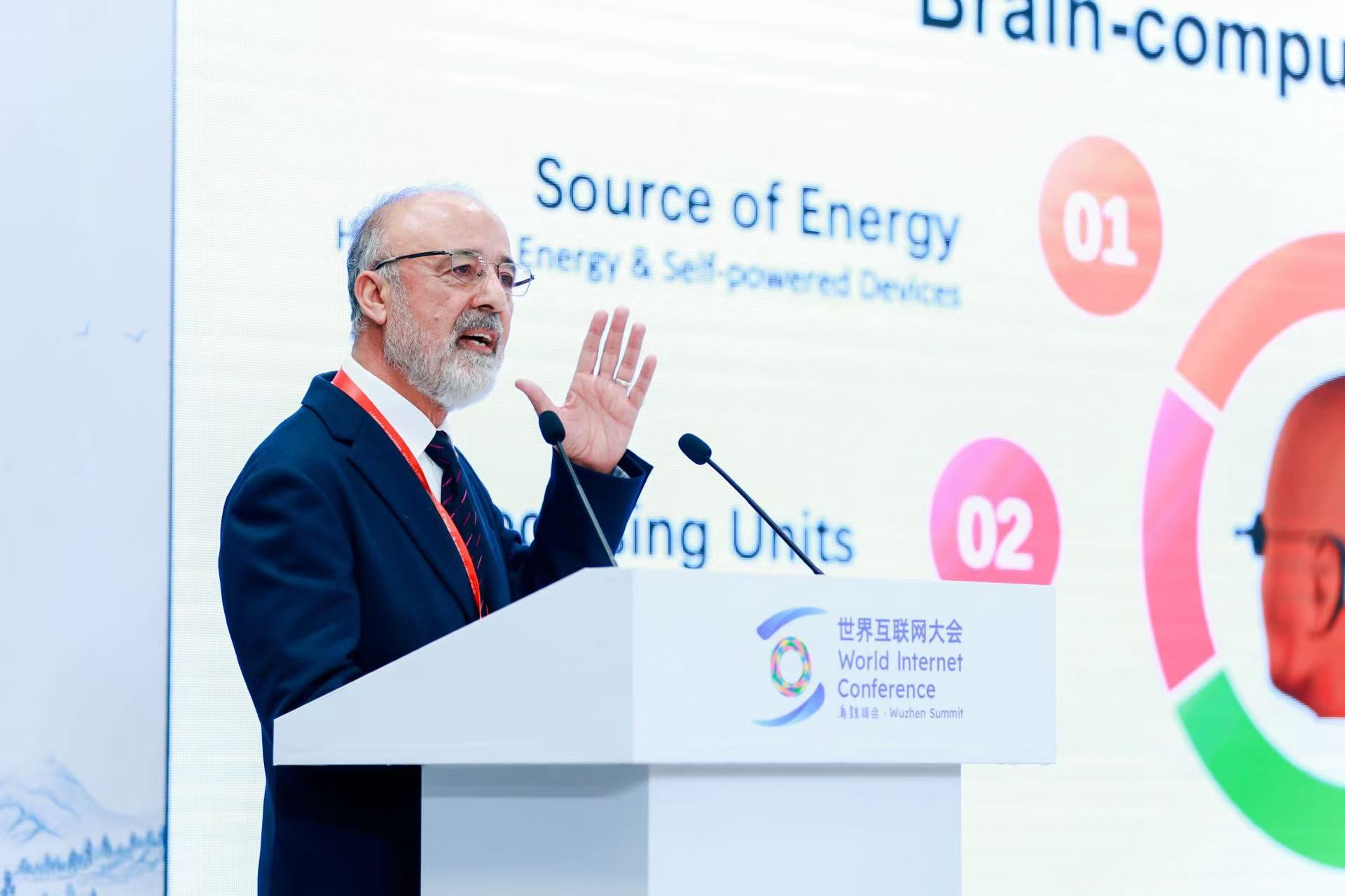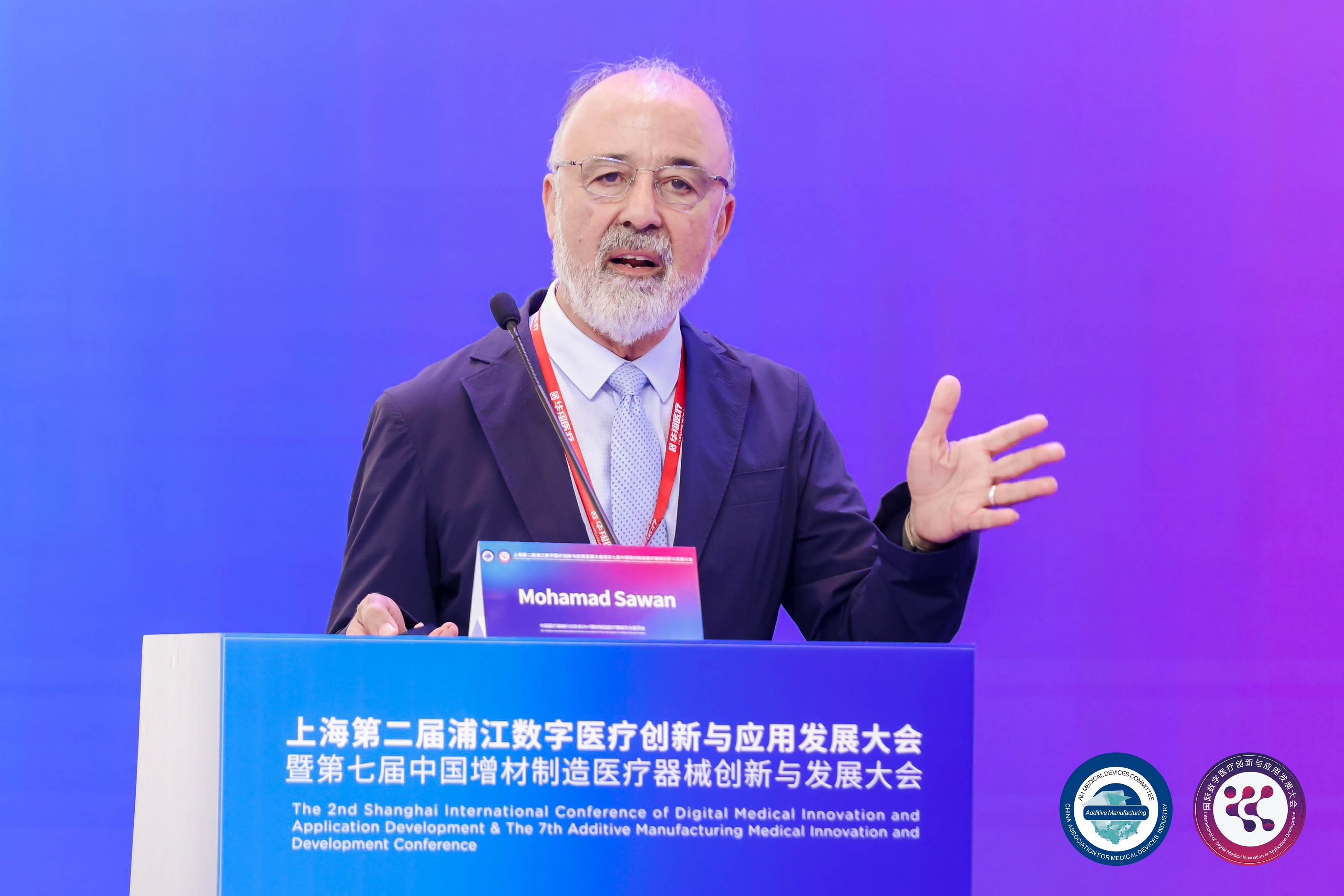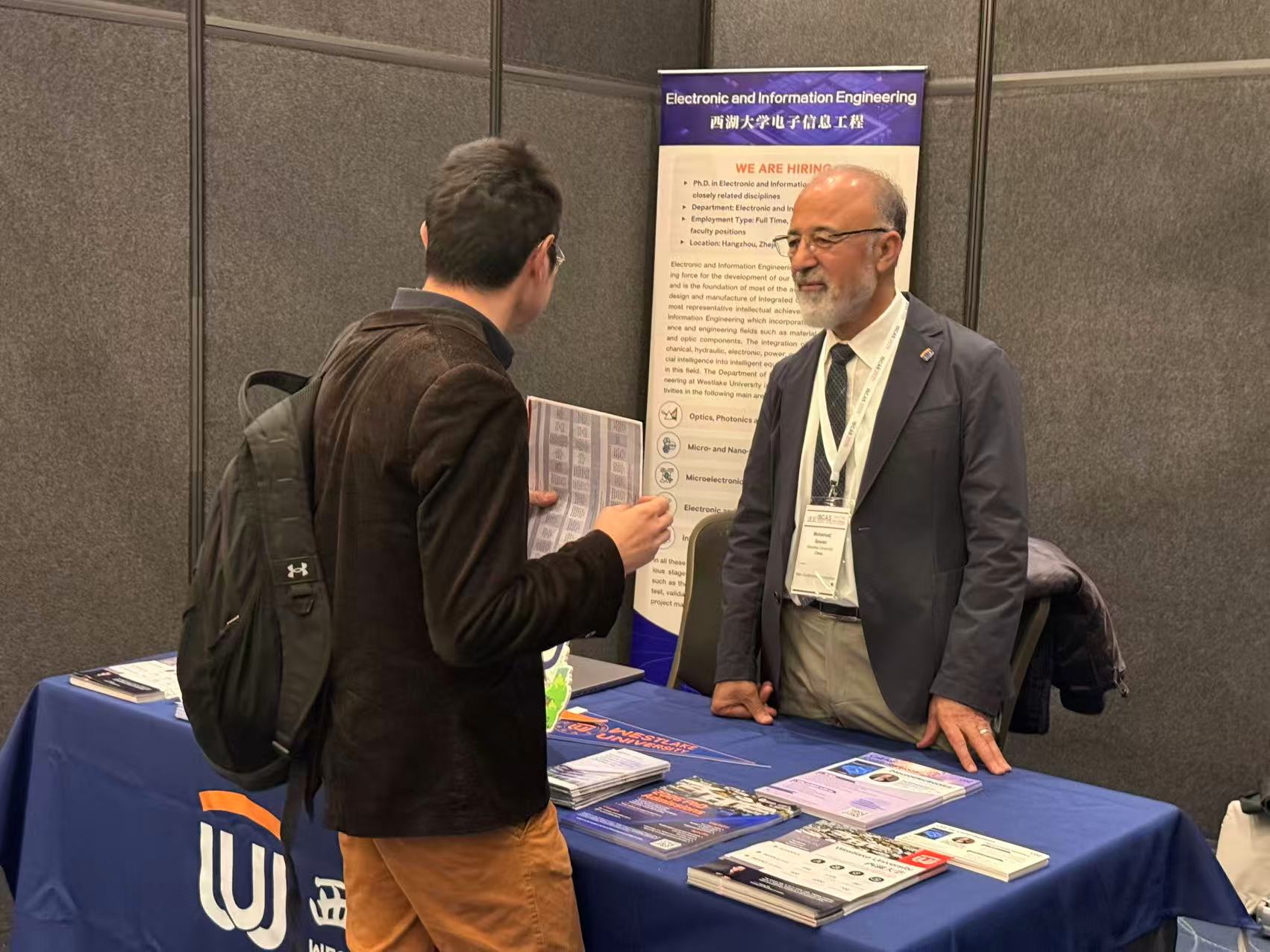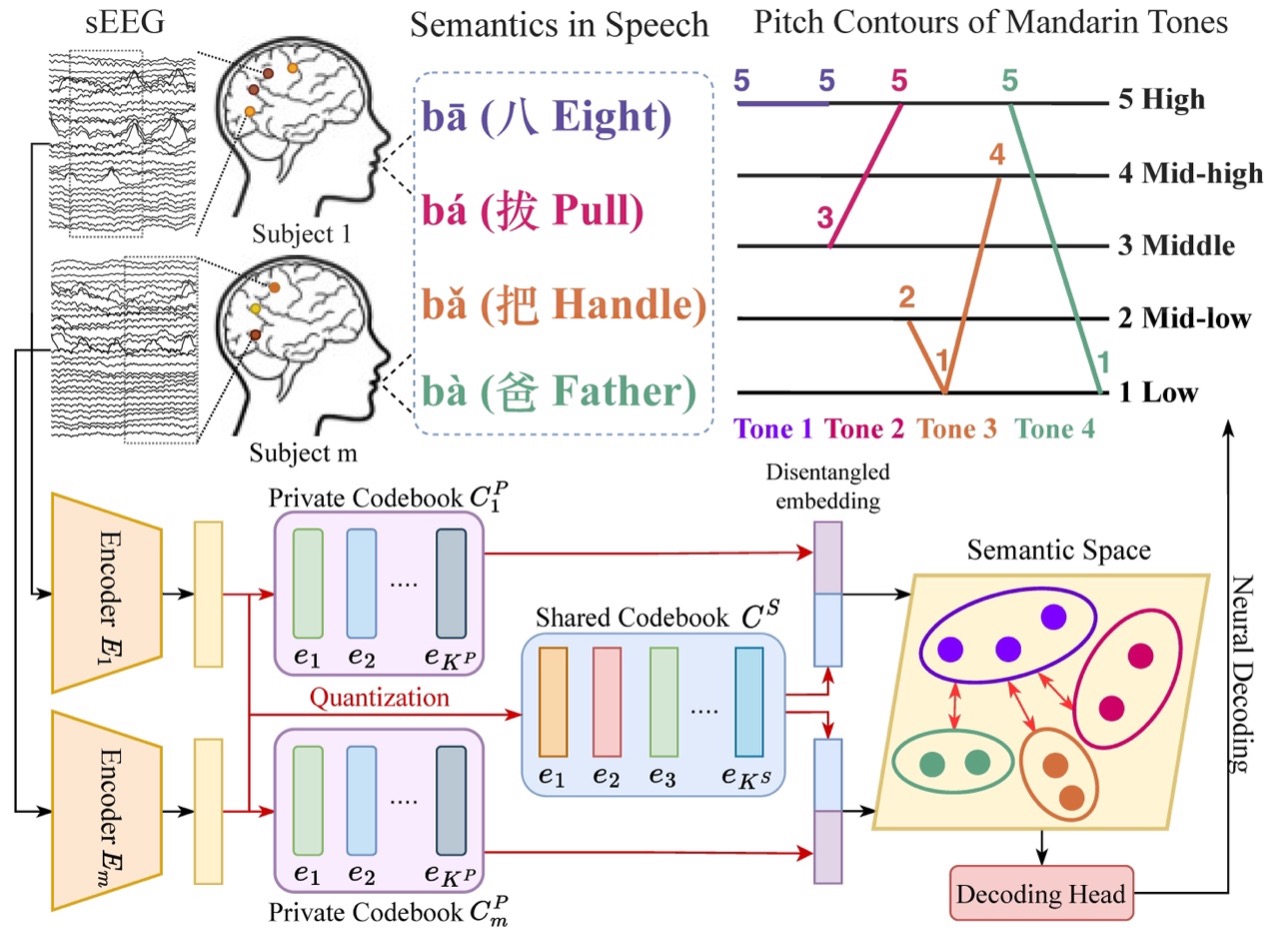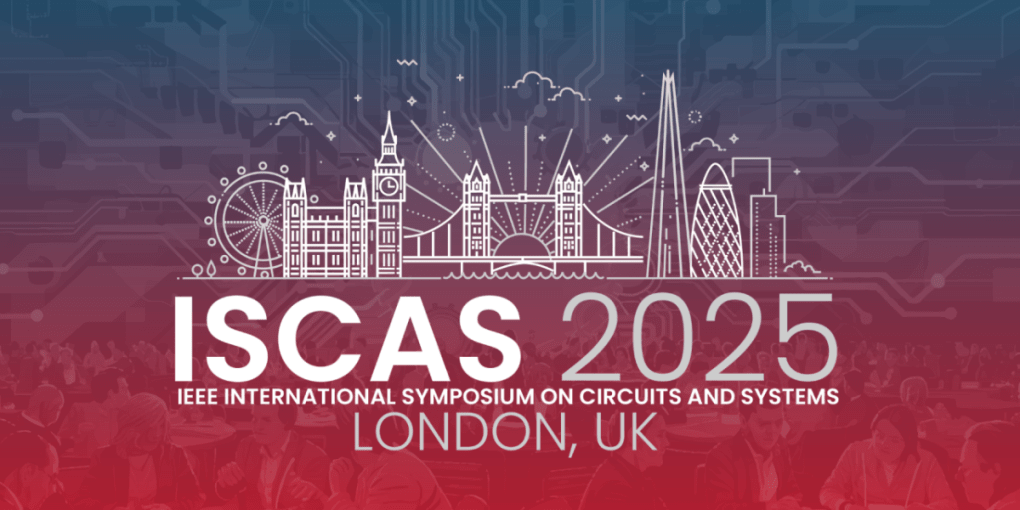On March 31, Chair Professor Mohamad Sawan at Westlake University, was invited to participate in the 2025 ZGC Forum on "Innovative Development and Application of Brain-Computer Interfaces" in Beijing and delivered a keynote speech.
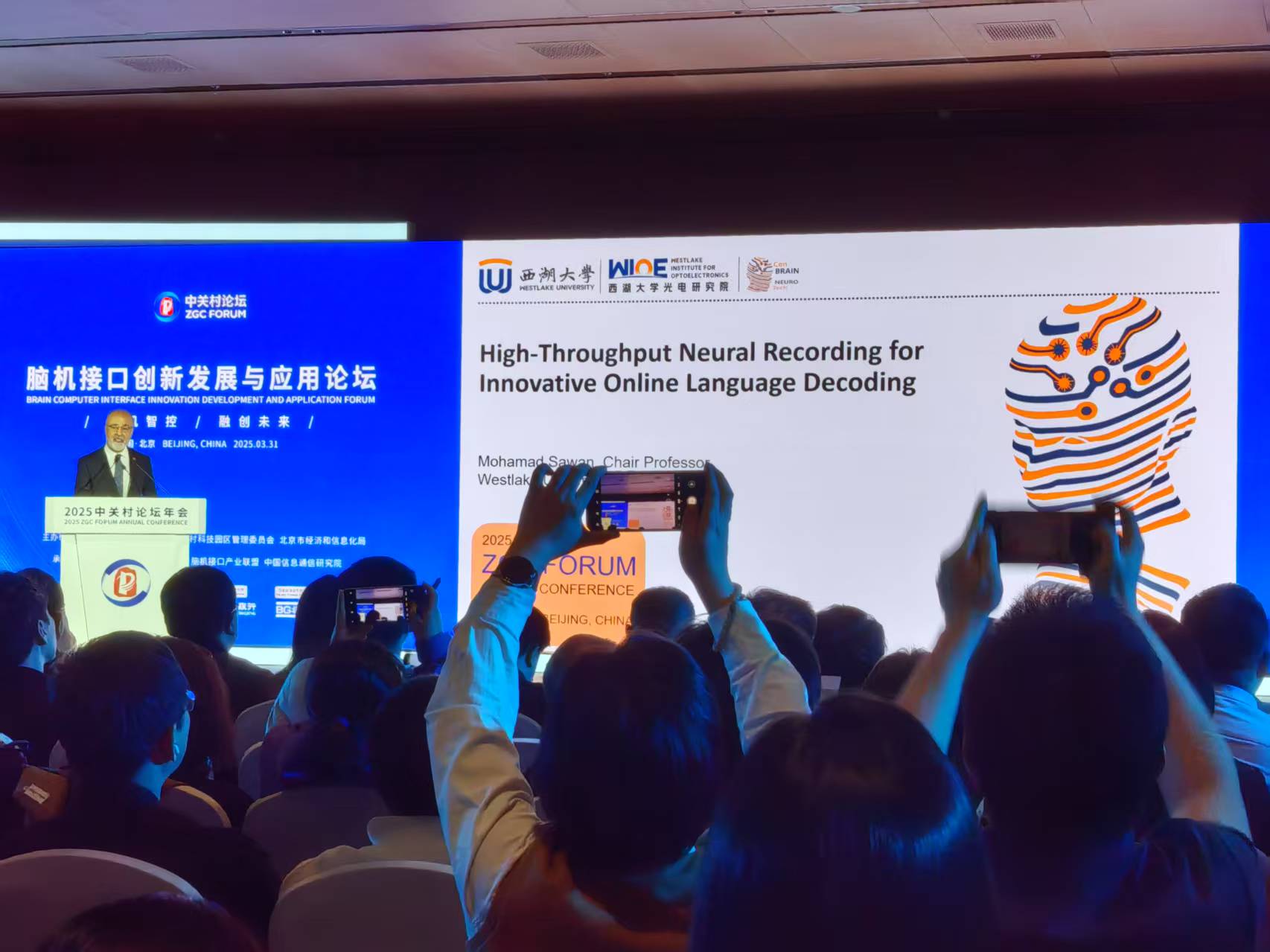
In the speech titled "High-throughput Neural Recording for Innovative Online Language Decoding", Professor Sawan's remarks focused on the combination of brain-computer interfaces and language function reconstruction, and he emphasized its role in promoting new forms of productive forces. In addition, he systematically elaborated on the current breakthrough progress of brain-computer interface technology in the field of language function reconstruction and presented his team's latest collaborative research project on real-time brain-language decoding. Based on the pronunciation rules of Chinese syllables, this research decodes intracranial electroencephalogram signals into Chinese syllable elements, thus achieving the online analysis of Chinese semantics, with the aim of realizing more natural and accurate brain-computer interaction and providing more powerful communication tools for people with disabilities.
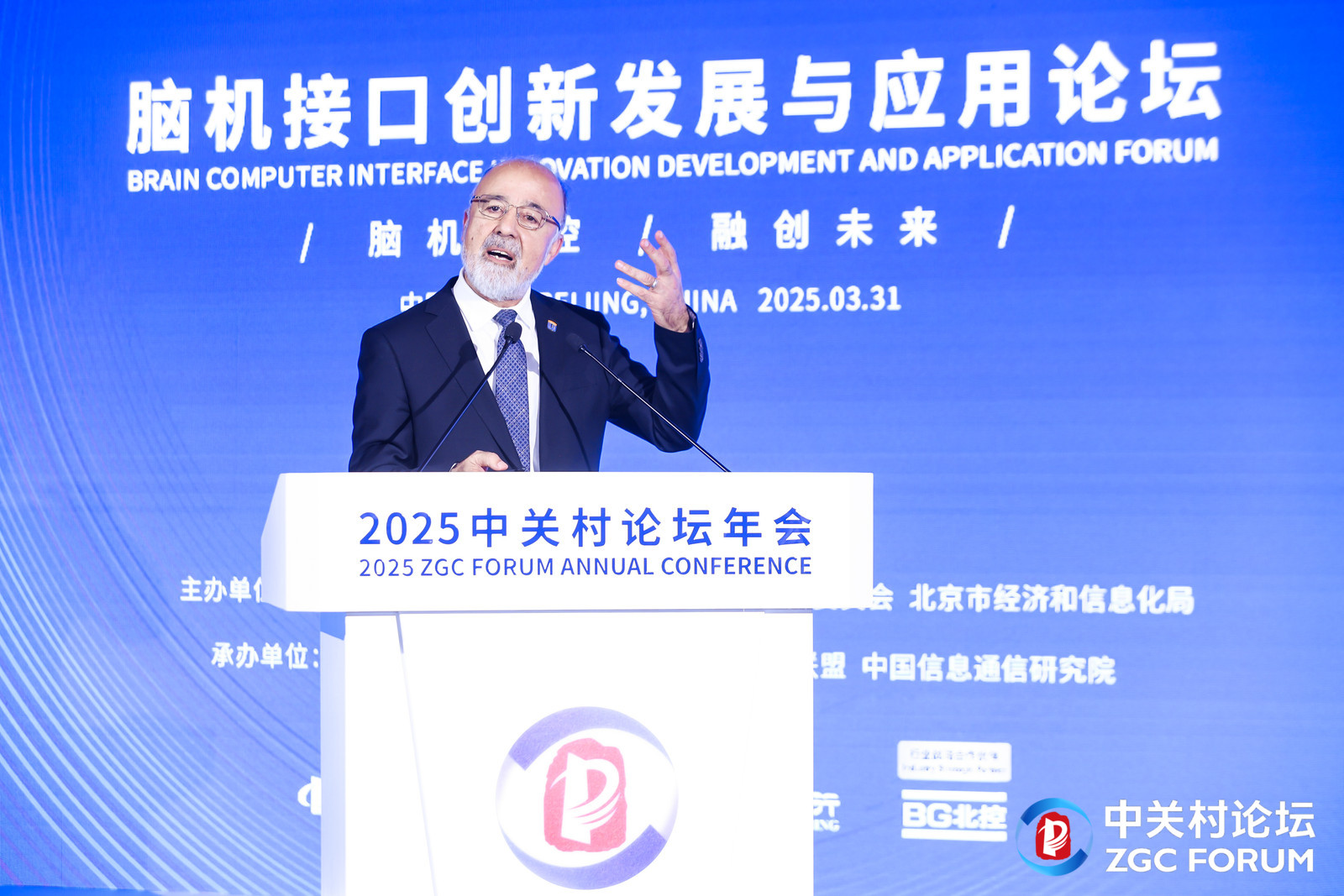
This year, the ZGC Forum on the “Innovative Development and Application of Brain - Computer Interfaces”, themed "Brain - Computer Intelligent Control: Integrating, Innovating, and Shaping the Future", centers on the vast development space and potential of BCI in the future.

Meanwhile, an event in Hangzhou brought together young innovators and senior scholars, engaging them in a joint discussion on how cutting - edge science can unlock new possibilities for future life.
On March 28, Professor Sawan attended the Future SCI-Tech PI Day hosted by MIT Technology Review and delivered a keynote speech titled "Neurotechnologies to Treat and Predict Brain Diseases". In this speech, Professor Sawan introduced his research team's achievements in brain-computer interfaces, prediction of epileptic seizures, and early diagnosis of Alzheimer's disease.
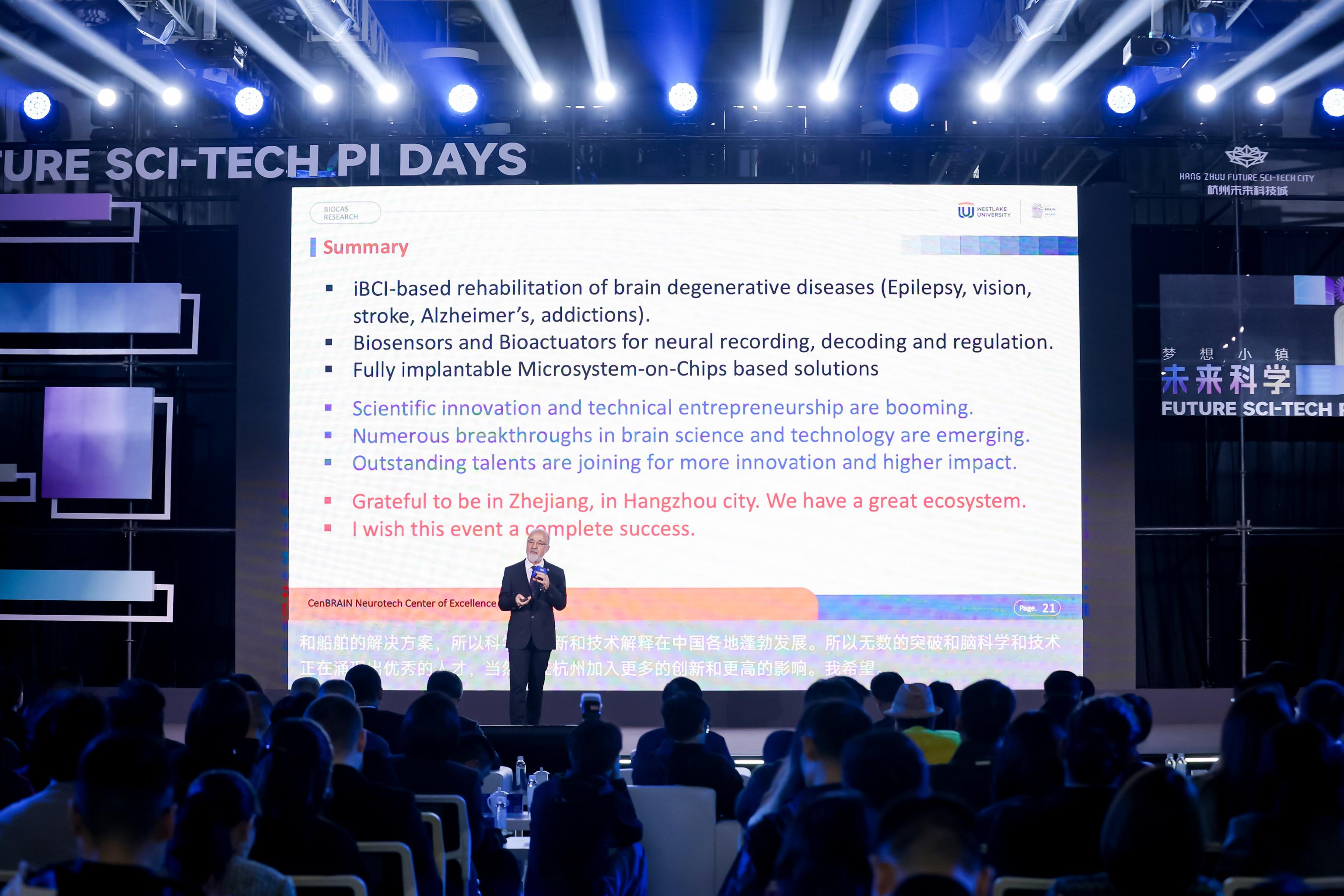
Facing the young scholars and scientific research enthusiasts on site, he also shared his personal feelings about conducting scientific research work in Hangzhou. As an internationally renowned expert in the field of biomedical engineering, he not only deeply felt the rapid development of Hangzhou in cutting-edge scientific and technological fields such as AI and life science, but also witnessed firsthand the vigorous momentum of China's scientific research and innovation.



